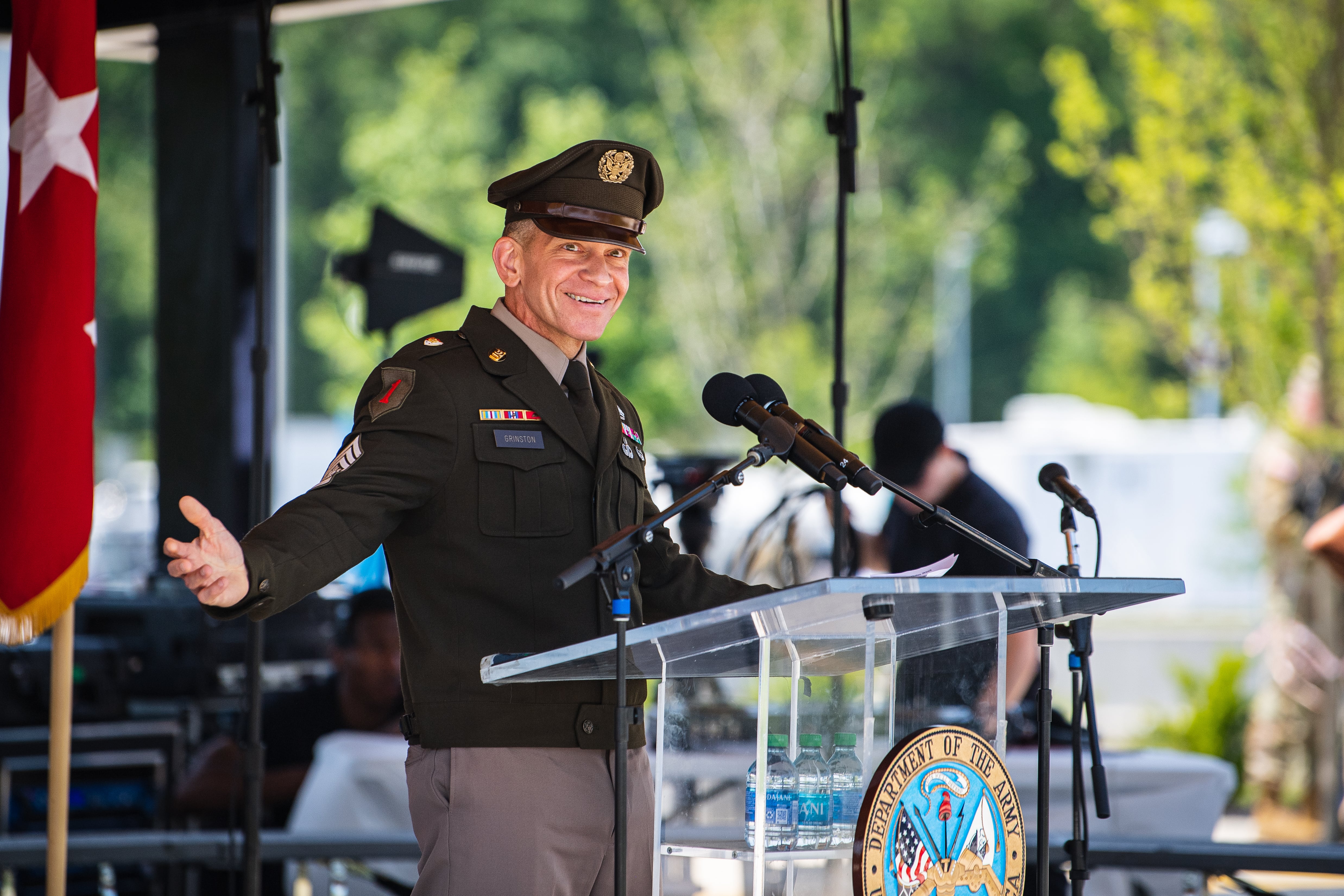From social media to interviews with reporters to taking the stage at numerous events over his four-year tenure as the service’s top enlisted soldier, Sergeant Major of the Army Michael A. Grinston has offered many quips, aphorisms and no-nonsense advice to soldiers and leaders up and down the chain of command. The Army has even compiled a series of fireside chats on various topics that Grinston has addressed through his tenure for the service’s NCO Journal dubbed “16x16.” As the 16th Sergeant Major of the Army leaves the post in a ceremony on Aug. 4 and then retires soon after, Army Times has compiled a sampling of those Grinstonesque sayings to share that we’re calling, “The Quotable Grinston.”
On every problem the Army faces
“If it was easy, somebody would’ve already done it.”
On improving soldier skills, raising standards
“Oh, it’s coming. Soldiers need to know how to read a map.”
“If you don’t know how to stop a soldier from bleeding, it doesn’t matter if you’re in large-scale combat or counterinsurgency, you don’t know how to do your tasks. At the battalion and below, you need to be an absolute expert in your job. Every soldier in your organization needs to know their job so well that we shouldn’t have to worry about that. [Then] we can worry about the deep fight and long-range hypersonics.”
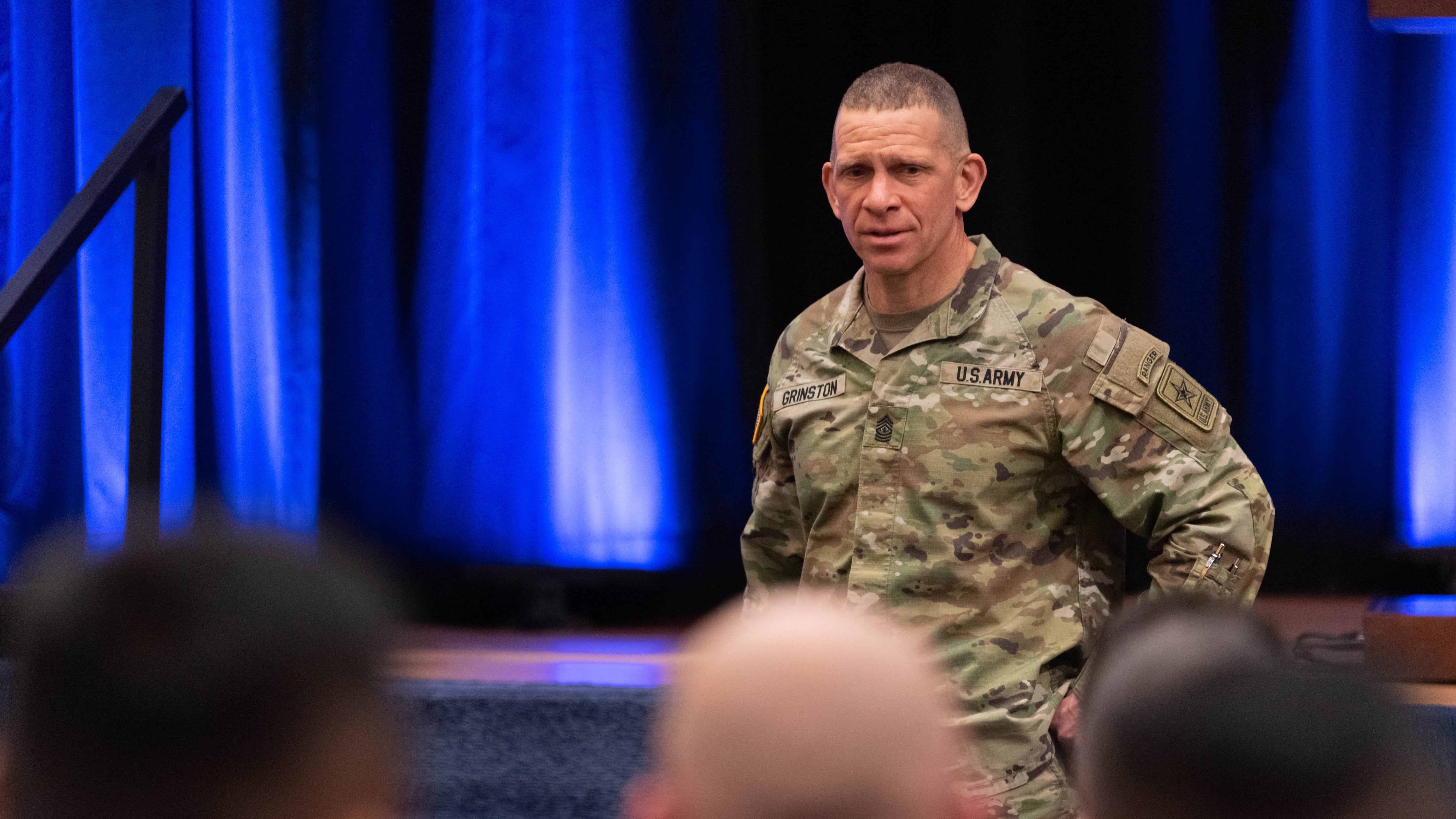
On NCO development
“What we need to do is continuously challenge our NCOs,” Grinston said. “So that’s one of our biggest changes; make our first NCO course rigorous and bring back a little rigor and field time and the tactics.”
On Ukraine
“When Russia invaded Ukraine, your Army knew exactly what we needed to do. You should be proud of what we’ve done.”
On operational tempo
“We’ve never said no. I’ve watched these soldiers, year after year, they’ve said, ‘Yes, I’ll go do that.’”
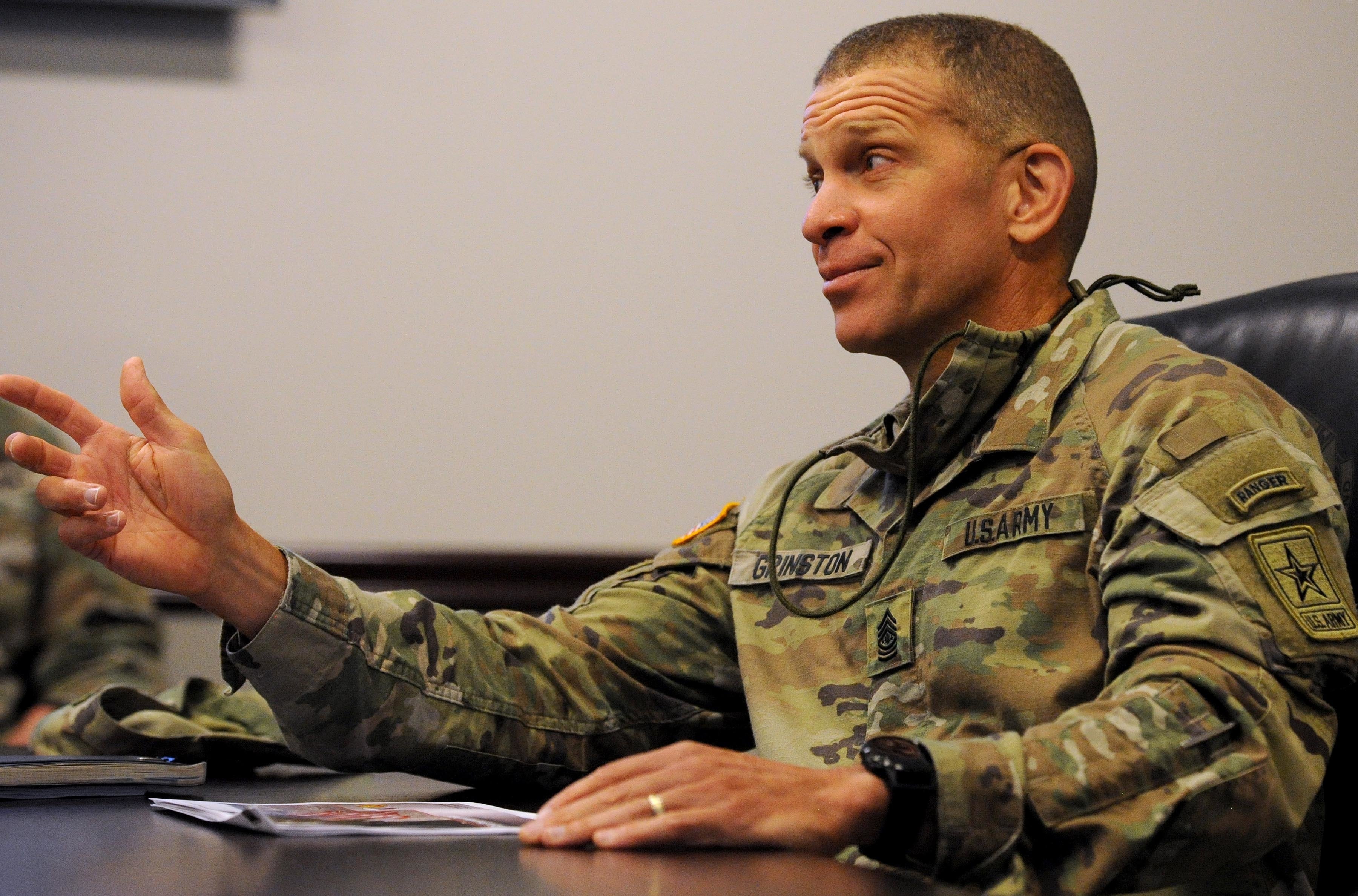
On finding solutions
“You hear it all the time: ‘Well, I don’t want to make sausage in front of the sergeant major of the Army.’ I want to make sausage. I want to hear ideas … because if the people with the money and authority that can help with policy don’t hear the ideas in the forum, then you may wait too long and it doesn’t get funded or it’s not a policy,”
On being present
“What I ask you all as leaders is, are you there? You don’t have to lead (physical training), you don’t have to be up front, you just have to be present.”
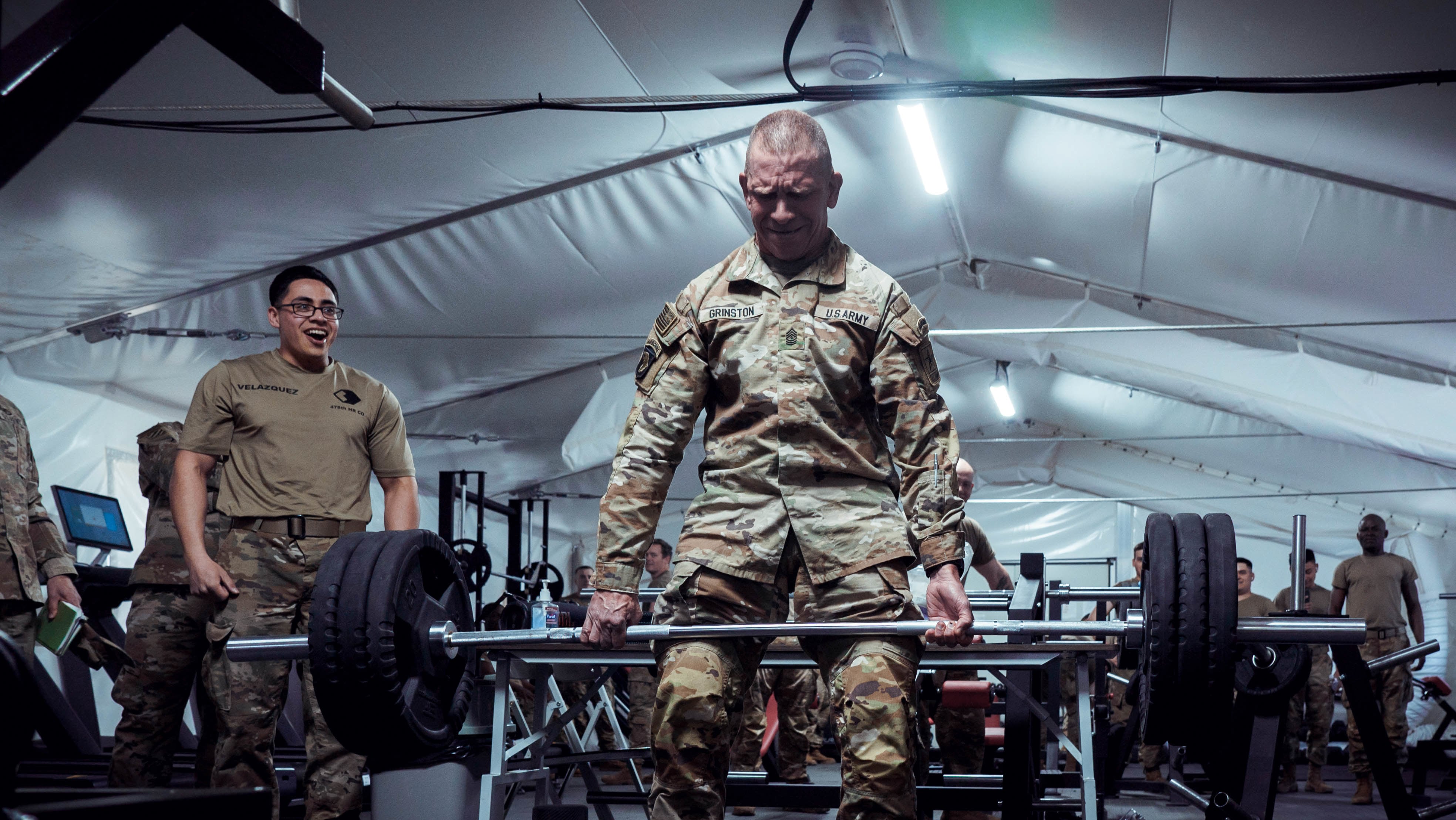
On mental health
“It’s okay to seek help if you need help. But I do want to caution you that that is not the panacea for all your problems. Maybe seek behavioral health, maybe you can talk to a chaplain. I think when we use all the resources that we have, I think we’re all going to be in a better mental state. We can’t just use only one resource.”
Following the murder of Spc. Vanessa Guillén
“I think that’s the hard part … ‘It wasn’t your actions, it was the actions around you, and somehow that was allowed to fester. And that’s the difficult part because you personally were performing exceptionally well. But those things around you were happening, and either you should have known or you allowed it.’”
On combat
“I think I did my best to bring everybody back. I didn’t, but I think they knew that I truly cared. And when I made them run a billion miles — when you’re in combat, you didn’t fall out.”
On his time as a drill sergeant
“I was mean. There’s no way I could lie to you, if you were to talk to my soldiers … I was not nice, I was not fun. I wouldn’t want me as a drill sergeant.”
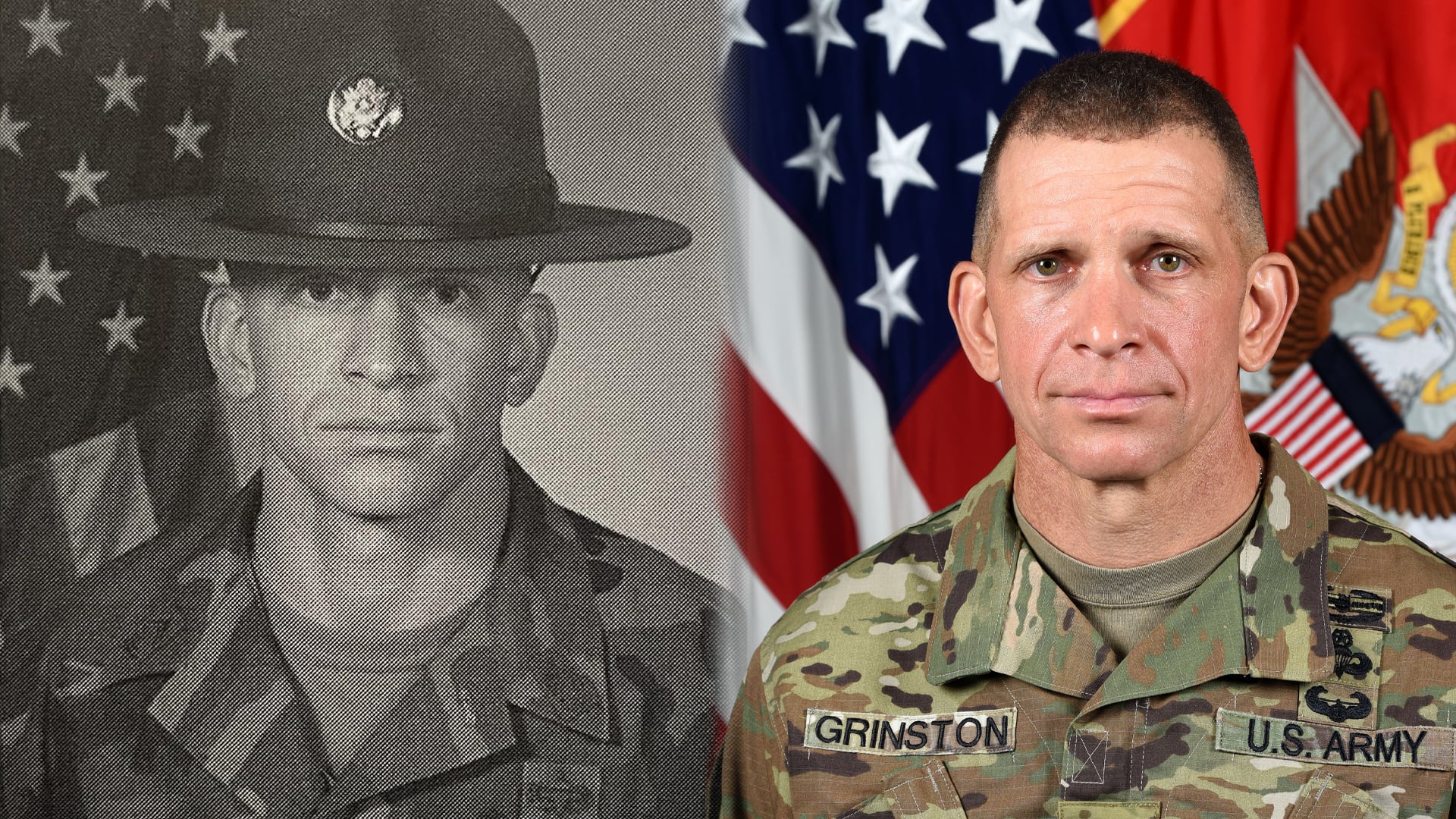
Stopping sexual assault and harassment
“You hear it all the time: ‘Well, I don’t want to make sausage in front of the sergeant major of the Army.’ I want to make sausage. I want to hear ideas … because if the people with the money and authority that can help with policy don’t hear the ideas in the forum, then you may wait too long and it doesn’t get funded or it’s not a policy,”
On suicide
“I think we need to rethink suicide. We want to put people in a box that behavioral health will solve. Maybe we need to look at it that everyone can be susceptible to a suicide thought or event.”
On failure
“I feel that I failed to communicate the importance of being a part of a cohesive team that is highly trained, disciplined and fit. I talk about ‘This is My Squad,’ [and] how to take ownership and treat people with dignity and respect. I failed to get [my message] down to the NCOs on Fort Hood.”
On readiness
“It’s not people first versus readiness; it’s people first that equals readiness in the Army. If I’m more fit, I’m a better [rifleman]; that’s about me as a person. If I’m not fit and I can’t shoot my weapon, I’m not very lethal.”

On race
“Racial identity is something that I have struggled with my entire life. … Sometimes in my life, I felt like it’s in the movie ‘The Green Book’ where the actor gets out of the car and he says, ‘I’m not Black enough for the Black people, and I’m not White enough for the White people.’”
On loss
“I got an award and I don’t even know if I deserve it. I’d give it back in a second if I could get the soldiers back.”
Facing death
“It got to the point that by the time I’d gotten to my second deployment, I’m like, there’s no way,” “There’s no way I could get out the first time, I’m definitely going to die on the second and third. We were in Mahmoudiyah — Triangle of Death. Great.”
Sources: Army Times; Military.com; Army.mil; TaskandPurpose.com
Todd South has written about crime, courts, government and the military for multiple publications since 2004 and was named a 2014 Pulitzer finalist for a co-written project on witness intimidation. Todd is a Marine veteran of the Iraq War.
